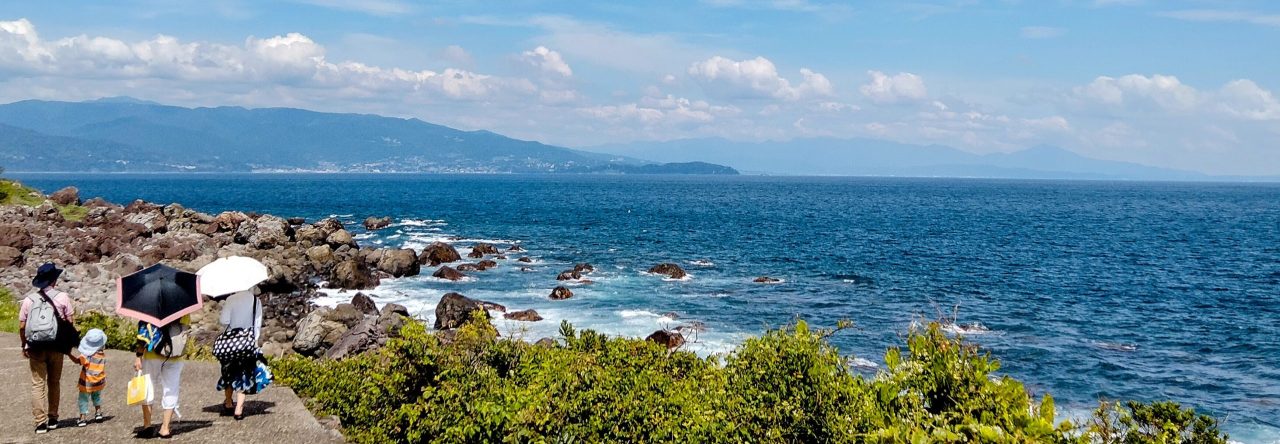■20200726(日曜日:雨) Korean-style measures

■今朝は走りました。いつものとおり5時の目覚ましで目を覚まし起き出して準備の後、玄関を出ました。その時は本当に少しだけ雨がぱらつく程度でしたので、何とか小一時間天気がもってくれるものと期待して走り始めました。
ところが走り出して20分ほどすると本格的に雨が降り始めました。気温が低くありませんので、ずぶ濡れになったからといって風邪を引く心配はありませんので、その点は気が楽でした。
結局いつものコースを少し短めに5.85kmを走り、これで今月は通算13回のランで89.05kmを積み重ね、月100キロ走まで残り5日で10.94kmのところまで来ました。5日間で11キロ弱ですから、いつものコースを2回走れば目標達成できます。今のところは順調です。
とにかく雨ばかり降る毎日です。金曜から土曜にかけて高崎に行ってきましたが、青空の下群馬の山々を見ることができなかったのは残念ですが、それは贅沢というものです。大した雨にも降られず、ドライブも順調に楽しめて、無事に帰ってこられたのですから、文句を言えば罰が当たります。
■さて今朝の東京新聞朝刊には、気になる記事がいくつも載っていました。
一つ目は「新型コロナインタビュー」です。東京都医師会の尾崎治夫会長がインタビューに答えています。政府の対策への評価は、との記者の問いに尾崎会長は以下のように応えられています。
(感染者集団を見つける)クラスター対策が悪いわけではないが、感染が拡大して限界を迎えた。韓国は大量検査と施設収容が一体となって対策が機能していた。
欧米の真似はするが、アジアの国から学ぼうとしないのは日本の良くないところだ。クラスター対策のチームとは別に、検査と入院体制の拡充に重点的に取り組むべきだった。
さすがは尾崎会長です。今朝の新聞内の別の欄「コロナを生きる」でフランスの経済学者・思想家であるジャック・アタリ氏がインタビューに答えています。その中でも韓国の対応を評価しています。
韓国は2015年に流行した中東呼吸器症候群(MERS)を教訓に疾病管理本部を強化し、流行後の管理体制を整備した。今回の対策の成功例といえる。
感染実態を把握する検査とマスク着用を徹底し、感染者が出た際には行動確認をする。ロックダウン(都市封鎖)ではなく、韓国式対策をしていれば、各国は経済的、人的にも被害を抑制できたろう。
と述べて、韓国の対策を高く評価しています。
残念ながら日本のマスコミは意地でも韓国の評価をしたくないかの如く、的確な現状を報告することは稀です。
さすがにマスコミですので、ネトウヨのように他国をコキ下ろして自己満足に陥るようなことはありませんが、正しく評価していないという点では五十歩百歩なのです。
いつになったら日本は真に変わることができるのでしょうか。東を見ては卑屈になり、西を見ては居丈高になる。そんな姿勢は明治以来、少しも変わっていません。
コロナ後の多極化した世界のもとで変化できる最後のチャンスが回ってくるかもしれません。
I ran this morning. As usual, I woke up at 5:00am with my alarm, got up and after getting ready, I went out the door. It was really only a little bit of rain at the time, so I started running, hoping that the weather would hold up for an hour or so.
However, about 20 minutes after I started running, it started to rain. The temperature wasn’t low, so I didn’t have to worry about catching a cold just because I was soaking wet, which made me feel better.
I ended up running 5.85km, a little shorter than my usual course, which brings my total for this month to 89.05km in 13 runs, bringing me to 10.94km with 5 days left to run 100km per month, which is just under 11km in 5 days, so I only need to run my usual course twice to achieve my goal. So far it’s going well.
Anyway, it’s been raining every day. I went to Takasaki from Friday to Saturday and it’s a shame I couldn’t see the mountains of Gunma under the blue sky, but it’s a luxury. It didn’t rain much and we enjoyed the drive and came back safely, so if we complain about it, we’ll be punished.
■By the way, there were a number of articles in this morning’s Tokyo Shimbun that caught my attention.
The first was an interview with the new corona. The first one is an interview with Mr. Haruo Ozaki, chairman of the Tokyo Medical Association. In response to a reporter’s question about his assessment of the government’s measures, Dr. Ozaki answered as follows
“It’s not that there’s anything wrong with the cluster measures (to find infected populations), but the spread of infection has reached its limits. South Korea’s countermeasures were functioning well, with mass testing and institutionalization working in tandem.
It’s not good for Japan to imitate the West but not learn from other Asian countries. We should have focused on expanding our inspection and hospitalization systems separately from the countermeasure teams for clusters.”
That’s what Chairman Ozaki is all about. In another column in this morning’s newspaper, “Living the Corona,” French economist and thinker Jacques Atari gave an interview. Among other things, he spoke highly of South Korea’s response.
He said: “South Korea took lessons from the 2015 Middle East Respiratory Syndrome (MERS) epidemic to strengthen its disease control headquarters and put in place a post-pandemic management system. This is a successful example of the measures taken.
Inspections to ascertain the actual status of infection and the wearing of masks were strictly enforced, and action was confirmed in the event of a case of infection. If we had taken the Korean-style measures instead of using lockdowns, we would have been able to limit the damage in terms of both economic and human resources,” .
The Japanese media rarely, if ever, accurately report on the current state of affairs, as if they don’t want to evaluate Korea at all.
Unfortunately, the Japanese media rarely report accurately on the current state of affairs, as if they do not want to give credit to South Korea.
As one would expect from the mass media, they don’t fall into the trap of self-congratulating other countries, as they do in the case of Nettoyo, but they are a hundred steps ahead of us in terms of not assessing the situation correctly.
When will Japan truly change? Looking to the east, we become obsequious, and looking to the west, we become stubborn. This attitude has not changed a bit since the Meiji era.
This may be Japan’s last chance to change in a post-Corona, multipolar world.
